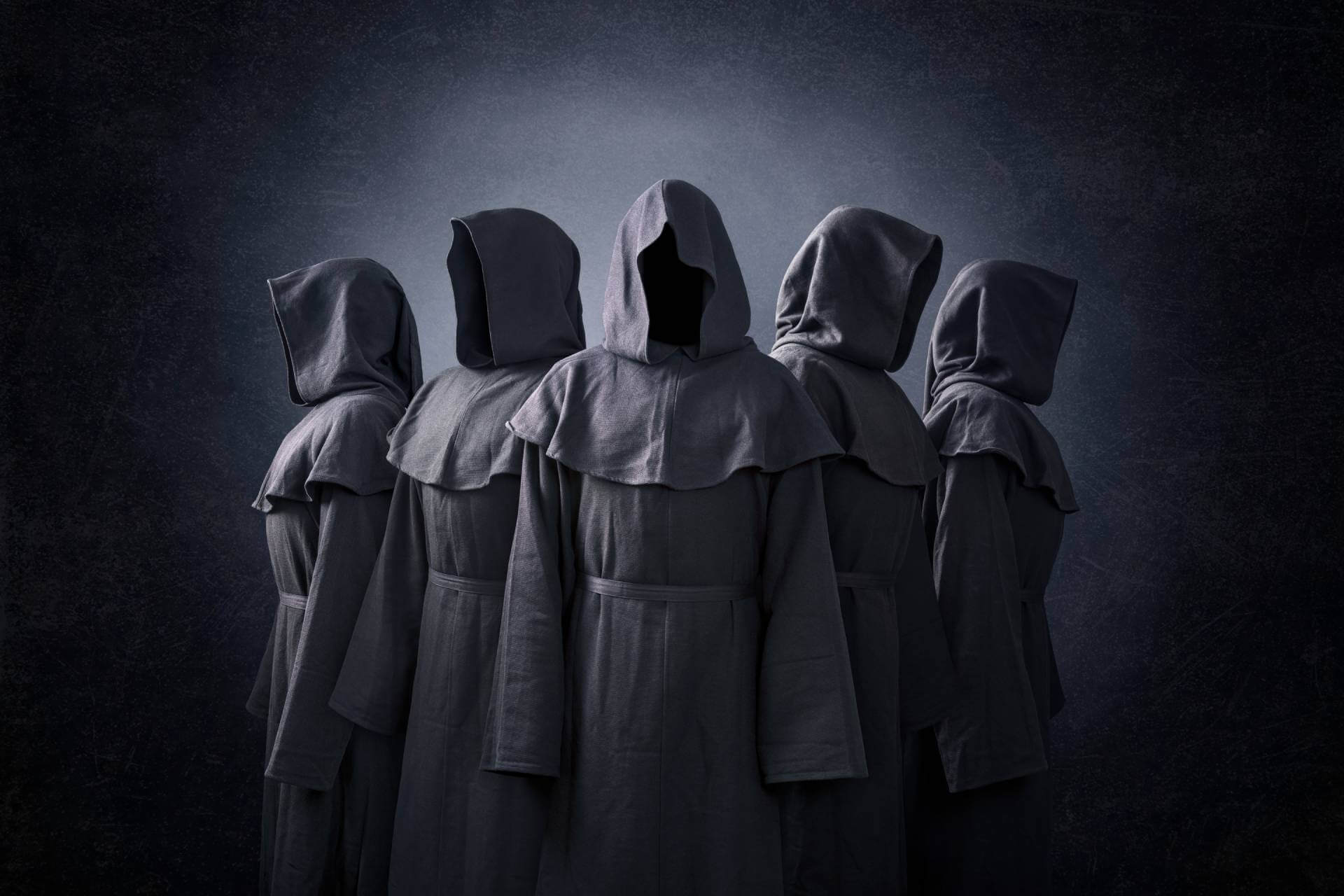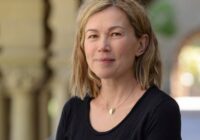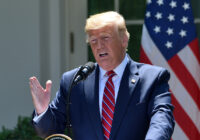This is part two of my series on why free market economics is a false religion. Be sure to check out part one, and stay tuned for the rest.
Free Market economics is the new world religion. It has its own prophets, Adam Smith or David Ricardo. It has its own reformations led by John Meynard Keyes and Milton Friedman. It has fundamentalists and fanatics. It has a priestly class, in academia, charged with maintaining orthodoxy and purity.
I didn’t always see the similarities between free market economics and religions. I remember reading a passage from Ronald Wright’s A Short History of Progress. He noted that “the twentieth century’s struggle between capitalism and communism had all the hallmarks of the old religious wars. Was defending either system really worth the risk of blowing up the world?”
Lightbulb! Looking back, the defining antagonisms of the last century weren’t Hindu versus Muslim or Protestant versus Catholic. The earth’s biggest your-side versus my-side conflict was the Cold War. During that standoff, the planet was even divided into First World (powerful Western nations) versus Second World (the commies) and Third World (everybody else). With enough nuclear weapons aimed and ready on both sides to destroy the planet thousands of times over, what was essentially a disagreement about the best way to run an economy threatened to end humanity itself.
More fuel was added to the fire when I read a passage from Thomas Frank’s book One Market Under God, where he quoted a flash-in-the-pan publication called Fast Company that discussed corporations becoming the world’s dominant institution, “occupying the position of the church of the Middle Ages and the nation-state of the past two centuries.”
Once I started seeing these similarities, other parallels came fast and furious. Adam Smith’s Wealth of Nations was obviously capitalism’s bible. Smith’s Invisible Hand of the Market essentially replaces the Hand of God. I noticed that the self-interest of capitalism requires an inversion of the Great Commandment — “love thy neighbor” loses the middleman and becomes simply “love thyself.” Milton Friedman began to look more like a fundamentalist preacher with a fetish for pain and penchant for purging markets of sin. The more similarities I saw, the more sense it made.
An immanent religion of work and savings
Before going any further, I need to introduce you to John Rapley and his book Twilight of the Money Gods, which provides a lot of the background for this series. If you check out my five-star review on Goodreads you’ll see that I said this was one of the best history books I have ever read. When I refer to Rapley, I’m referring to this crackerjack book.
So, how does one define religion? It’s safe to dispense with glib answers by those like Sigmund Freud who called it a “collective neurosis,” or Karl Marx (very much a heretic in the eyes of the free market faithful) who famously said it was the “opiate of the masses.” A little closer might be Émile Durkheim, who defined religion as “a unified system of beliefs and practices relative to sacred things which unite into one single moral community called a church, all those who adhere to them.” Yet it is unnecessary, I think, for a church to call itself a church. As they say, if it walks like a duck and talks like a duck…
Free market capitalism has become its own religion. It has its own rituals, supernatural mysteries, theology and clergy.
Every human being on earth today is part of the global economy. We all take part, whether we want to or not, in the everyday rituals of this global economy. Rather than fasting, praying or genuflecting, we go to work to earn money and spend it. Rather than passing the plate on Sunday, we participate in the world banking system, buying things with debit or credit cards, and possibly saving money in bank accounts or 401ks.
Even the Vatican has its own bank, code-named the Institute for Works of Religion. No big deal — this bank just manages about $65 billion in assets, holds more than $20 million in gold reserves and, like just about every other major financial institution, frequently gets into legal trouble for fraud and embezzlement. The Vatican has billions and billions more in assets and land value. Don’t forget that holding land used to be the world’s primary measure of wealth. The Catholic Church was once the largest landholder in Europe (and still ranks among the top landowners on earth with an estimated 177 million acres — more than a quarter million square miles, roughly the land area of Texas). Not bad!
John Rapley points out how our ancient ancestors used to pray for wealth and happiness (as I’m sure still happens today). However, instead of embracing hardship to earn our eternal reward in heaven, the free market faith tells us to scrimp and save to receive dividends here on Earth. Behold the parable of Andrew Carnegie, who saved his $1.50 a week from working in the boiler room and telegraph office so he could invest in the Adams Express Company and eventually become one of the richest men in history, worth about $310 billion in today’s money. Rags to riches.
In the religion of free-market capitalism, the promised land is not heavenly salvation but earthly reward. Materialism and wealth offer a vision of heaven on earth. In the Gospel of John, Jesus talked about mansions in the sky. Why wait for that when there are plenty of mansions with breathtaking ocean views right here on earth in sunny Malibu, California?
“You get what you pay for,” Rapley notes, is a declaration of faith, just the same as a person might say “God is merciful.” The world’s economic system depends on a system of widely shared beliefs that few would ever dare to question: You work for what you earn. If you pay for something, it belongs to you. You have a moral obligation to repay your debts. These core convictions form the basis upon which our entire global society operates.
When you pull back from these small-scale ideas, it’s possible to see that the whole system is built on faith. We all have faith that the green piece of paper we call a dollar is worth something. We have faith that the numbers in our bank accounts can be converted to groceries or gas or to pay rent. The economic system depends on a shared faith that there will be a future and that our hard work will allow us to repay our debts. Rapley says, “This transformation of nothing into something drives our modern economy forward, and though we take it for granted, to ancient eyes it would have looked like a miracle.”
From this shared faith springs the basis for an entire belief system. Some religions call it grace, an understanding of the right way to live and act. In the Taoist religion the “tao” is defined as being right with all that is. Buddhists believe in kamma or karma, the law of moral causation — that every action has consequences. Free market economics has its own comprehensive doctrine and moral code promising earthly salvation. Following the precepts of the free market, it is believed, will guide humanity to a promised land of broad prosperity.
We are told that if we work hard, we will get ahead. We understand that saving money is responsible and good. We must honor our debts and pay on time or face retribution. We are encouraged to invest our savings in the market so that we can all share in its abundance. Believers know that the market is ALWAYS right — just have faith in the market. The religious adherents of Free-Market Capitalism are absolutely convinced that government interference hurts the market, that private owner ship is always preferable to public ownership, and that taxation is tantamount to theft.
A religion needs a priesthood
Free market capitalism is a false religion. And like any religion, it depends on clergy to maintain the faith. This priestly class doesn’t wear cassocks or Roman collars — but they do play the same role that clergy have always played in maintaining the existing class structure.
The theology of capitalism was not handed down on stone tablets. The language of capitalism’s theology is science. The priestly classes of this new religion study the science of economics. It is up to this academic clergy to understand the complicated mathematical equations they use to support their beliefs.
That same calculus is a wall used to keep the uninitiated from perceiving the Talmudic mysteries of their faith. Like Rapley says, just as you can’t work at the Vatican without speaking Latin, any economist who might be illiterate in the language of complex mathematical theory is ignored. The revelations of economics are not for the uninitiated. Just as it takes years of training and education to become a Catholic priest, no one becomes an economist without following the correct path of learning and indoctrination. The authority of this priestly class on economic matters will not be questioned.
An anthropologist might recognize that this priestly class plays the same role clergy have always played. According to Rapley, popular anthropology explains that “priestly castes grew up alongside ruling classes, justifying the privileges of both and socializing the masses into passive acceptance of their leaders’ superiority.” Is it a coincidence that historically the clergy were made up of wealthy classes, third and fourth sons unlikely to benefit from the laws of primogeniture?
The wealthy Borgia family, Italian nobles, perfected this idea by winning the papal throne twice. Says Rapley, “much as medieval religions offered an organic conception to justify a society stratified between aristocrats and the rest, so too did the new economic faith say our own stratification was natural…” Today’s inequality is supposedly proof that society’s winners getting what they deserve. The reality is that servants to power are working overtime to justify the existing status quo. It has always been thus. Today is no different.
If there is one change it is that the modern religion, free-market capitalism, does not advertise itself as a religion. Nor do its clerics perceive themselves in this way. Capitalism’s clergy are academics and professors. We don’t call them “father” or “bishop,” we call them “doctor,” out of respect for their learning and education.
But, just as in the past, it is the economic clergy’s job to justify the existing class structure. Instead of the old explanations that the aristocracy was blessed by God, here to exercise His will on earth, high priests like Milton Friedman proclaim that today’s aristocratic rich deserve everything they have because they worked hardest for it.
To put it another way we all might be familiar with, the rich are the “makers;” everyone else is the “takers.” Without lavish rewards, we are told, the rich maker class would have no incentive to create the new things that make our lives better and make them so much money. It was nothing new when former Republican House Speaker Paul Ryan said things like that during the Obama years. It’s just about the oldest trick in human civilization.
Now, I am no expert in theology, but Harvard divinity professor Harvey Cox is. Cox too sees the similarities between the free market faith and the religions of old. He writes that he experienced a sense of déjà vu reading the financial press:
The lexicon of the Wall Street Journal and the business sections of Time and Newsweek turned out to bear a striking resemblance to Genesis, the Epistle to the Romans, and Saint Augustine’s City of God. Behind descriptions of market reforms, monetary policy, and the convolutions of the Dow, I gradually made out the pieces of a grand narrative about the inner meaning of human history, why things had gone wrong, and how to put them right. Theologians call these myths of origin, legends of the fall, and doctrines of sin and redemption.
Just as these modern theologians interpret capitalism’s sacred texts for guidance about living your best life, there are also spiritualists probing at the mysteries of the faith. Financial expert John Mauldin sees this phenomenon at work, writing,
In the not too distant human past, shamans and soothsayers conjured theories about how the world worked and how to predict the future. Some examined the entrails of sheep, while others read meaning into the positions of the stars … In today’s world, economists serve exactly the same function. They skry their data sets — a latter-day version of throwing the bones — and then, based on the theory by which they believe the data should be interpreted, they confirm the orthodox policy choices of their political masters.
Like ancient alchemists, modern wizards of Wall Street work similiar magic, converting imaginary derivatives and credit default swaps into huge (sacred?) cash cows. Who needs to convert lead into gold when it’s so much easier to log into an online brokerage account and convert $200,000 into $2,000,000?
In the next piece, we’ll look at an extremely important figure in the rise of the free market faith, British Lord John Meynard Keynes, and how he brought about a second coming of capitalism.
[Anton Schauble edited this piece.]
[Let’s Make Them Pay first published this piece.]
The views expressed in this article are the author’s own and do not necessarily reflect Fair Observer’s editorial policy.
Support Fair Observer
We rely on your support for our independence, diversity and quality.
For more than 10 years, Fair Observer has been free, fair and independent. No billionaire owns us, no advertisers control us. We are a reader-supported nonprofit. Unlike many other publications, we keep our content free for readers regardless of where they live or whether they can afford to pay. We have no paywalls and no ads.
In the post-truth era of fake news, echo chambers and filter bubbles, we publish a plurality of perspectives from around the world. Anyone can publish with us, but everyone goes through a rigorous editorial process. So, you get fact-checked, well-reasoned content instead of noise.
We publish 2,500+ voices from 90+ countries. We also conduct education and training programs
on subjects ranging from digital media and journalism to writing and critical thinking. This
doesn’t come cheap. Servers, editors, trainers and web developers cost
money.
Please consider supporting us on a regular basis as a recurring donor or a
sustaining member.
Will you support FO’s journalism?
We rely on your support for our independence, diversity and quality.










Comment